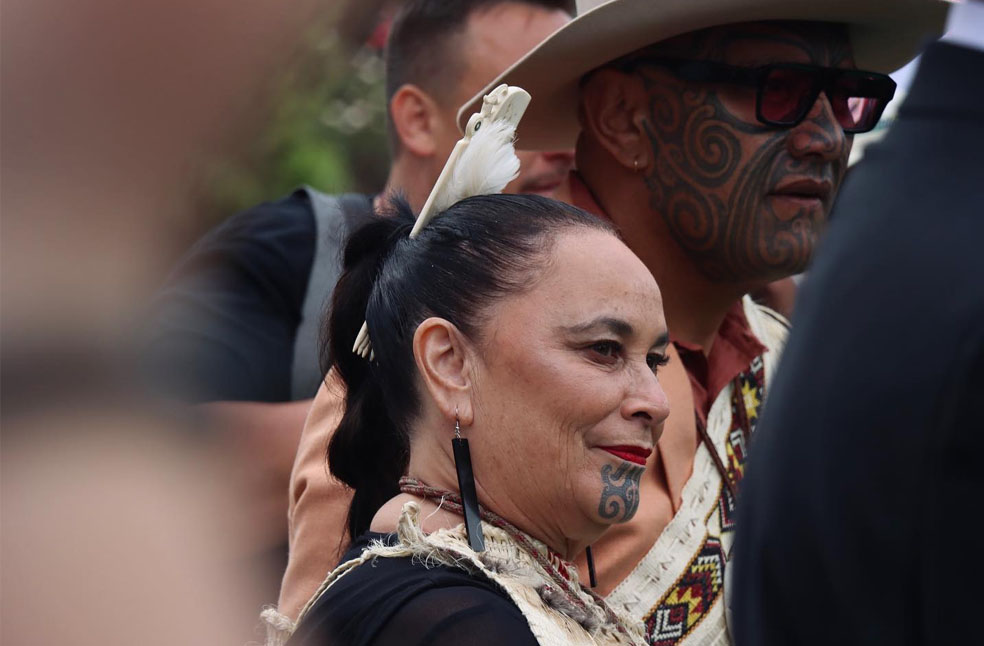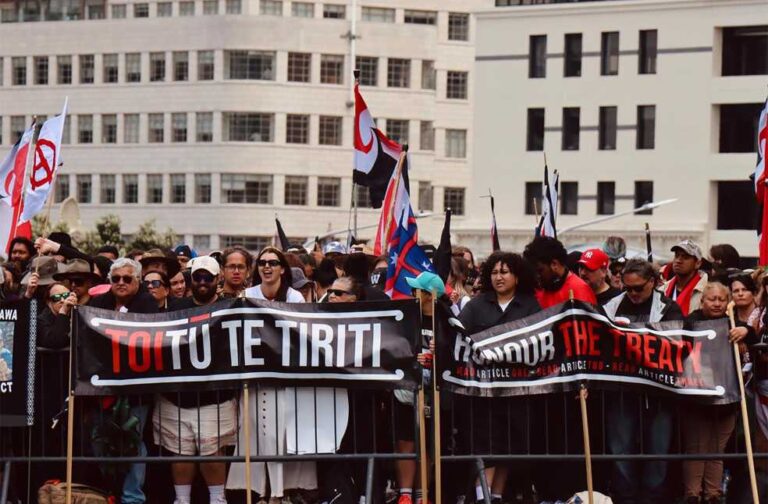Wellington, New Zealand: After a nine-day hīkoi (peaceful protest), over 35,000 people gathered outside New Zealand’s parliament in Wellington to oppose a proposed bill aimed at redefining the principles of the Treaty of Waitangi, the foundational document between British settlers and the Māori.
The bill, introduced by the Act Party, a junior member of the governing coalition, aims to provide a legal framework for the treaty’s interpretation, arguing it has fostered racial divisions.
Act leader David Seymour, who has Māori ancestry, defended the proposal, stating it seeks to ensure equal rights for all New Zealanders.
Seymour said that, “My Treaty Principles Bill says that I, like everybody else, whether their ancestors came here a thousand years ago, like some of mine did, or just got off the plane at Auckland International Airport this morning to begin their journey as New Zealanders, have the same basic rights and dignity.”

The demonstration, one of the largest in New Zealand’s history, was led by Māori Queen Ngā Wai hono i te pō and drew diverse supporters draped in Māori flag colours.
While Prime Minister Christopher Luxon confirmed his National Party would block the bill, critics argue the debate risks undermining indigenous rights.
Protesters, including Māori Party co-leader Debbie Ngarewa-Packer, condemned the bill as divisive, calling for genuine equality that addresses historical injustices faced by the Māori people.
Conversely, some residents argued for a unified approach, voicing concerns over perceived preferential treatment.
The debate has spotlighted New Zealand’s evolving approach to indigenous rights, fuelling both unity and division in the nation’s ongoing journey toward equality.



